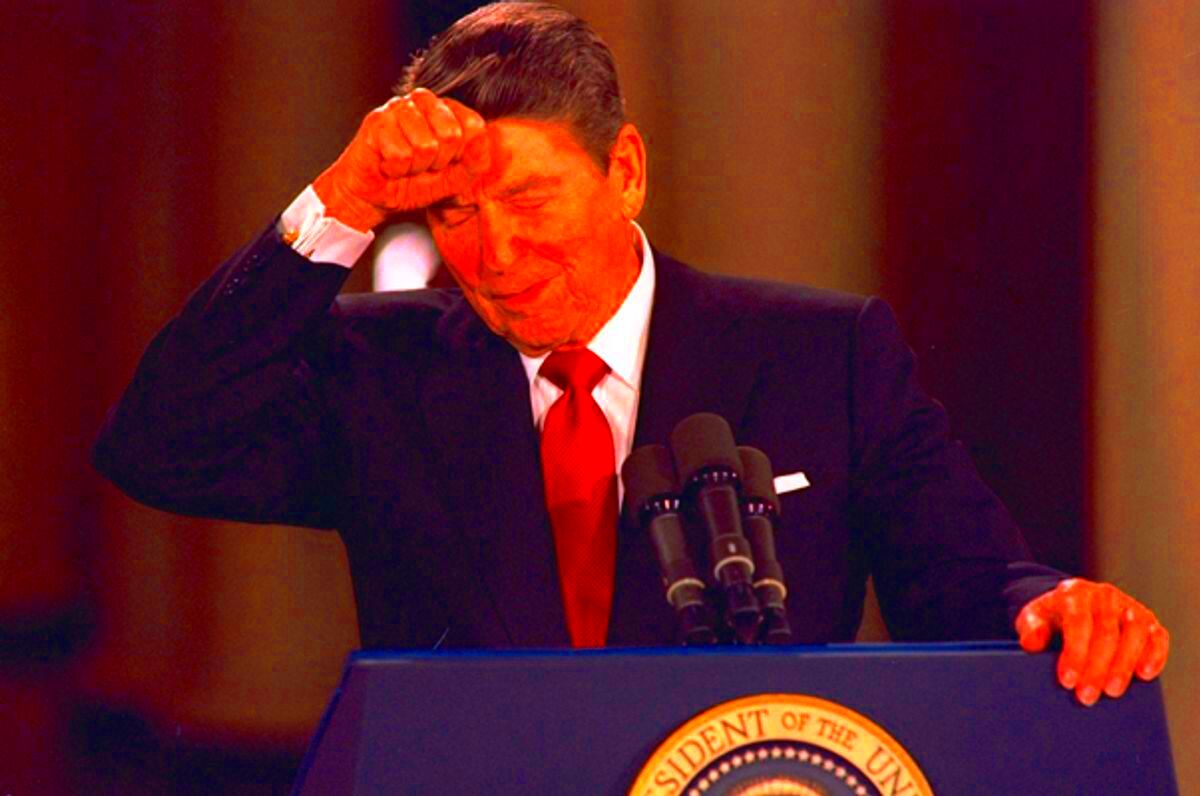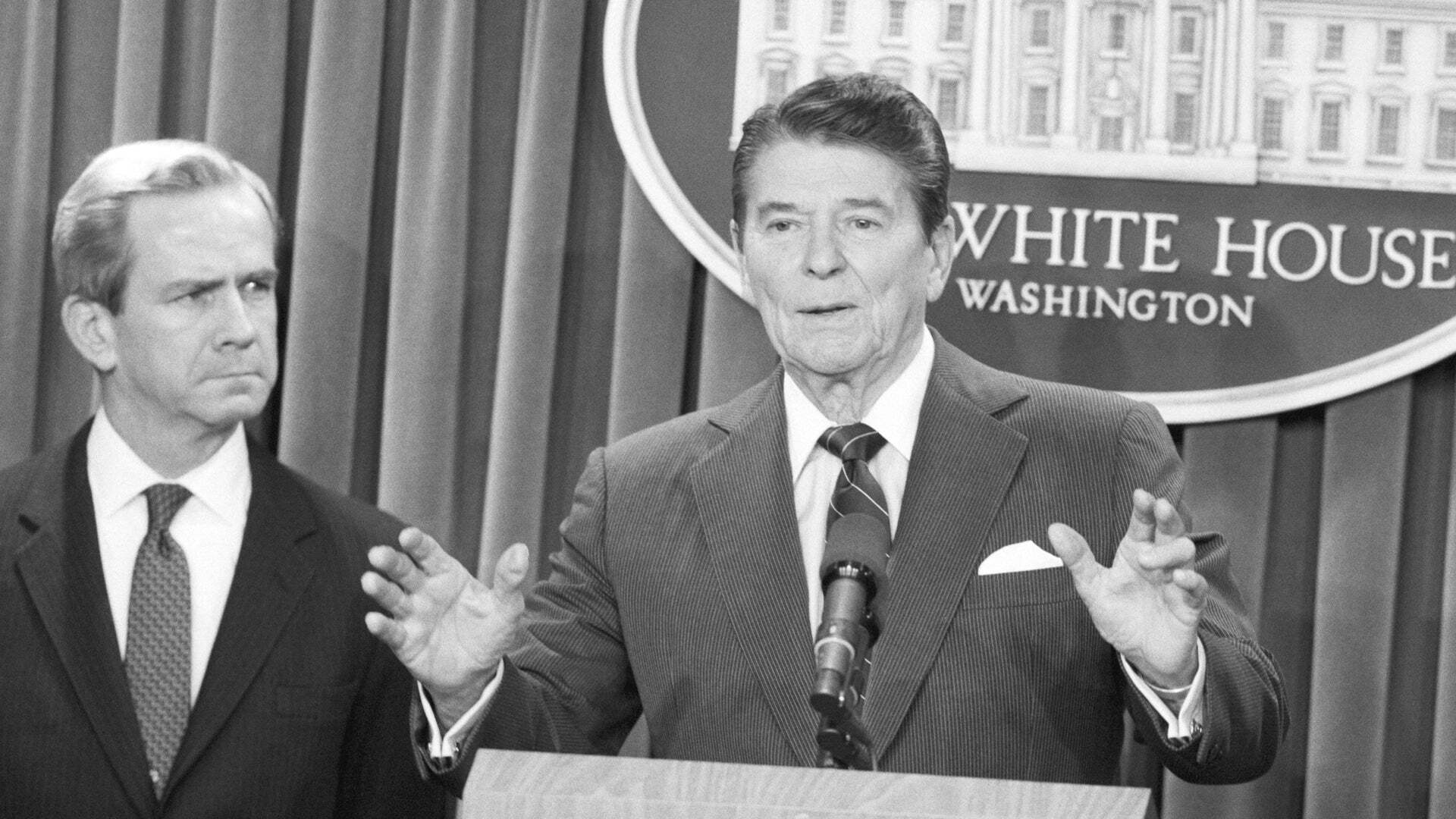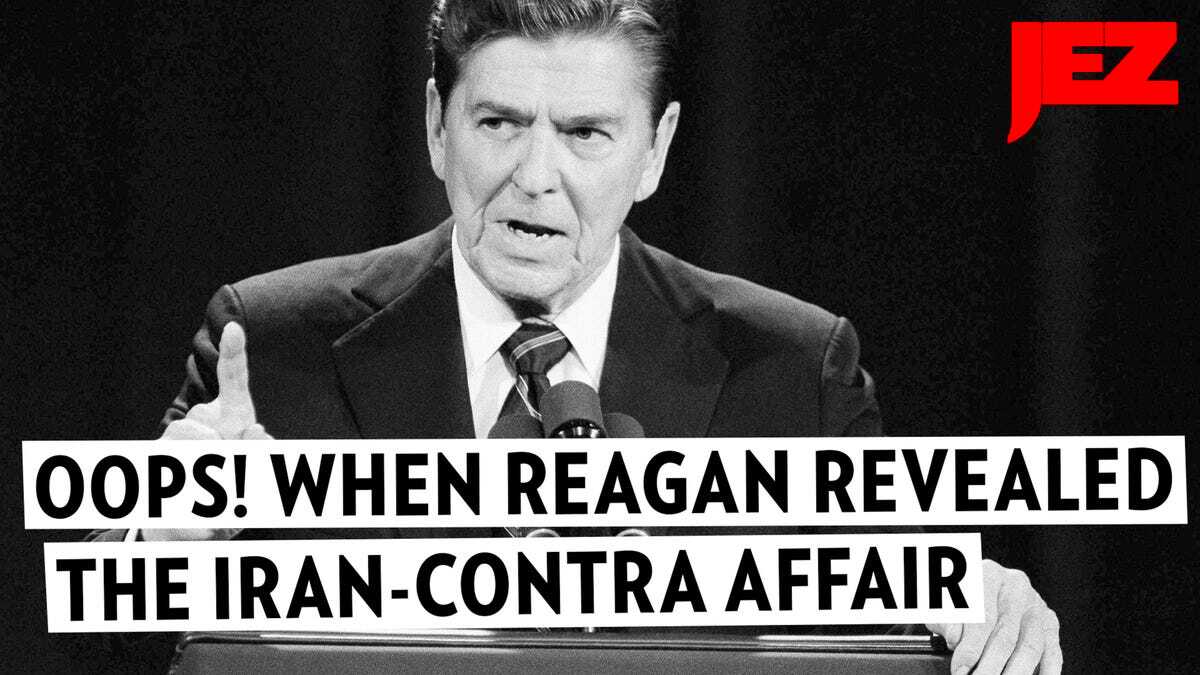The Iran-Contra scandal was one of the most significant political controversies in U.S. history, taking place during the second term of President Ronald Reagan's administration in the 1980s. At its core, the scandal involved secret operations to both sell arms to Iran (which was under an arms embargo) and use the profits to fund Contra rebels in Nicaragua, who were fighting the Sandinista government. The scandal broke in 1986, raising serious questions about the Reagan administration’s foreign policy and its legality.
The operation was kept hidden from the public and even from Congress, leading to accusations of illegal activities and undermining trust in the government. The investigation and resulting fallout would forever change how Americans viewed their government, as well as the way future administrations would handle secretive operations.
The Role of Ronald Reagan in the Iran-Contra Affair

As the President, Ronald Reagan was directly involved in shaping U.S. foreign policy, but his role in the Iran-Contra affair remains one of the most debated aspects of his presidency. On one hand, Reagan publicly denied knowledge of the operation. However, key members of his administration, including National Security Advisor John Poindexter and Lt. Colonel Oliver North, were heavily involved in orchestrating the covert operations.
Reagan’s role was somewhat ambiguous. While he did sign off on some of the operations, it’s unclear how much he knew about the full scope of the activities. Despite his claims of ignorance, several of his top officials, who were key players in the operation, testified under oath that they acted with his approval.
The Iran-Contra scandal led to questions about Reagan’s leadership, with critics arguing that he either failed to control his own administration or, worse, was complicit in the illegal actions. Regardless, the fallout would leave a lasting impact on his image as a leader.
How the Scandal Affected Reagan’s Public Image

The Iran-Contra scandal significantly affected Ronald Reagan’s public image, especially in the years following the revelations of 1986. Initially, Reagan enjoyed high popularity, having been re-elected in a landslide in 1984. However, the scandal revealed the level of secrecy and misconduct within his administration, leading many to question his leadership abilities and integrity.
At first, Reagan’s approval ratings took a sharp hit. The public was outraged by the illegal arms deals with Iran and the covert support for the Contra rebels. The scandal painted Reagan as either uninformed or, worse, as someone who was willing to turn a blind eye to illegal activities in the pursuit of foreign policy goals.
However, over time, public opinion softened. Many Americans believed Reagan when he said he wasn’t directly involved in the illegal activities and that he was misled by his advisors. His image began to recover as he remained in office, focusing on other issues like the economy and the end of the Cold War.
Despite the recovery, the scandal always lingered as a blemish on Reagan’s legacy. It created a divide in how people viewed his presidency—while some admired his foreign policy successes and leadership, others could not overlook the ethical and legal violations associated with the Iran-Contra affair.
The Congressional Investigation and Reagan’s Response
In the wake of the Iran-Contra scandal, Congress launched a full investigation to understand the extent of the operations and determine who was responsible for the illegal actions. The investigations began in 1987, with the House and Senate conducting separate inquiries. The hearings were intense, drawing significant media attention as key figures in the Reagan administration, including National Security Advisor John Poindexter and Lt. Colonel Oliver North, were called to testify.
Reagan, as the sitting president, was not directly subpoenaed, but the investigations ultimately focused on his role in the scandal. His response was a combination of denial and defense. Reagan maintained that he was unaware of the full details of the operation and that his subordinates had misled him. His defense relied on the argument that he had been kept in the dark about the illegal nature of the arms sales and the diversion of funds to the Contras.
Despite Reagan’s claims of ignorance, the testimony from various officials painted a different picture. Some suggested that Reagan was, at the very least, aware of certain aspects of the operations, though the degree of his involvement remained unclear. The investigation concluded with several high-ranking officials being indicted, and in 1991, President George H. W. Bush pardoned six individuals involved in the scandal. While Reagan was never directly charged, the investigation left a stain on his presidency.
Impact on Reagan's Political Legacy
The Iran-Contra scandal had a lasting impact on Ronald Reagan’s political legacy. Despite being one of the most popular U.S. presidents of the 1980s, the scandal overshadowed much of his second term in office. While Reagan continued to have strong support from his political base, the scandal left many questioning his leadership and decision-making skills.
Initially, the scandal damaged Reagan’s reputation, especially among Democrats and those who had not fully supported his administration. The secretive nature of the operations, along with the illegal activities involved, made it difficult for Reagan to distance himself from the controversy. His approval ratings dropped, and he faced intense scrutiny during the Congressional hearings.
However, as time passed, Reagan’s image began to recover. His success in foreign policy, particularly in the conclusion of the Cold War, became a key part of his legacy. The eventual end of the Soviet Union, which many attributed to Reagan’s hard stance on communism, helped rebuild his reputation as a leader on the world stage.
In the end, Reagan’s legacy is seen as a mix of both triumphs and flaws. While the Iran-Contra scandal will always be a significant part of his history, it has not been the sole focus. His legacy is often viewed as one that helped shape the end of the Cold War, even as the Iran-Contra affair cast a shadow over his second term.
The Media's Role in Shaping Public Opinion
The media played a crucial role in shaping public opinion during and after the Iran-Contra scandal. The scandal broke in 1986 when stories about the illegal arms deals with Iran and the funding of Nicaraguan rebels hit the headlines. The media’s coverage of these events was intense, and the constant stream of information kept the public engaged throughout the investigation.
Journalists played an important role in uncovering the details of the scandal. Investigative reporting, especially by news outlets like The New York Times and The Washington Post, helped reveal the full scope of the operation. These reports were vital in starting the Congressional investigations and holding government officials accountable.
The media coverage also influenced how the public viewed Ronald Reagan. While some news outlets presented the scandal as a major breach of ethics and law, others took a more sympathetic stance toward Reagan, focusing on his claims of ignorance. This created a divide in public opinion, with some Americans believing Reagan’s defense and others seeing him as guilty by association.
In addition, the media’s portrayal of the hearings played a major role in shaping public perception. The dramatic televised testimonies of key figures like Lt. Colonel Oliver North and John Poindexter brought the scandal into living rooms across the country. These televised moments were pivotal in influencing how Americans felt about Reagan’s leadership.
Overall, the media’s role in the Iran-Contra scandal was instrumental in keeping the issue in the public eye and influencing how the scandal affected Reagan’s image and legacy.
Public Perception and Reagan’s Approval Ratings
The Iran-Contra scandal had a profound impact on public perception of Ronald Reagan, especially during the height of the controversy. Initially, the scandal caused a significant drop in Reagan’s approval ratings. The American public was shocked by the revelations of illegal arms deals with Iran and the funding of Nicaraguan Contras. Many Americans were angry that their president had been involved in such covert operations, raising questions about his integrity and trustworthiness.
At the peak of the scandal in 1987, Reagan’s approval ratings dipped to around 50%, a sharp decline from his high ratings earlier in his presidency. This was a critical moment, as public support is essential for any president to maintain influence in both domestic and foreign policies. The ongoing investigations and the dramatic Congressional hearings, which included testimony from high-ranking officials like Lt. Colonel Oliver North, kept the scandal in the media spotlight, further eroding public trust.
However, Reagan’s approval ratings began to recover in the months and years that followed. A key factor in this recovery was his ability to separate himself from the scandal by maintaining his claim of being uninformed about the illegal activities. Many Americans came to view him as either misled by his subordinates or as a leader who was not directly involved in the wrongdoing.
By the time Reagan left office in 1989, his approval ratings had bounced back, reaching levels that were similar to those at the beginning of his presidency. His popularity was bolstered by achievements in foreign policy, such as the end of the Cold War and his economic policies. Yet, the Iran-Contra scandal remained a blemish on his presidency, one that tempered his legacy in the eyes of some voters.
Frequently Asked Questions
As the Iran-Contra scandal continues to be a topic of historical discussion, many people have questions about its impact on Ronald Reagan and his presidency. Below are some of the most frequently asked questions about the scandal and Reagan’s involvement:
- What exactly was the Iran-Contra scandal?
The Iran-Contra scandal involved secret U.S. government operations to sell arms to Iran, despite an arms embargo, and using the proceeds to fund Contra rebels in Nicaragua, in violation of U.S. law. - Was Ronald Reagan directly involved in the Iran-Contra operations?
Reagan denied direct involvement in the illegal activities. He claimed he was misled by his subordinates, but many critics argue that he was at least indirectly aware of the operations. - How did the scandal affect Reagan’s public image?
The scandal damaged Reagan’s reputation in the short term, leading to a drop in approval ratings and public scrutiny. However, his image improved over time as he continued to lead the country, focusing on his foreign policy successes. - What were the long-term effects of the Iran-Contra scandal?
While the scandal tarnished Reagan’s presidency, it did not significantly alter his overall political legacy, which is largely remembered for its achievements in foreign policy, particularly the end of the Cold War. - Did any officials face consequences for the scandal?
Several high-ranking officials were indicted, and some, including Lt. Colonel Oliver North, faced trials. In the end, President George H. W. Bush pardoned six individuals involved in the scandal.
Conclusion: Long-Term Effects of the Iran-Contra Scandal on Reagan’s Image
The Iran-Contra scandal will always be a significant chapter in Ronald Reagan’s presidency, and its effects on his image remain part of his legacy. In the immediate aftermath of the scandal, Reagan’s credibility took a hit, with many questioning his judgment and leadership. However, as time passed, the scandal became one of many issues that defined his second term, rather than the defining issue of his presidency.
In the long run, Reagan’s image recovered, helped by his success in ending the Cold War and his role in shaping U.S. foreign policy during a critical period in world history. While the Iran-Contra affair left a mark on his reputation, it did not overshadow his accomplishments in the eyes of many Americans. Some believed he was a victim of deceitful subordinates, while others felt that he was ultimately responsible for the actions of his administration.
Today, the scandal remains a blemish on his legacy, but it’s often viewed as just one part of a complex and transformative presidency. Reagan’s legacy has ultimately been shaped by his leadership on the world stage and his role in shaping modern conservative thought. The Iran-Contra scandal will always be a significant part of that story, but it’s just one chapter in a broader narrative of his presidency.

 admin
admin








